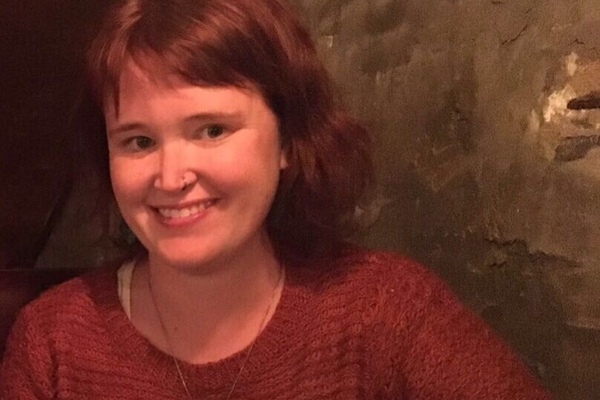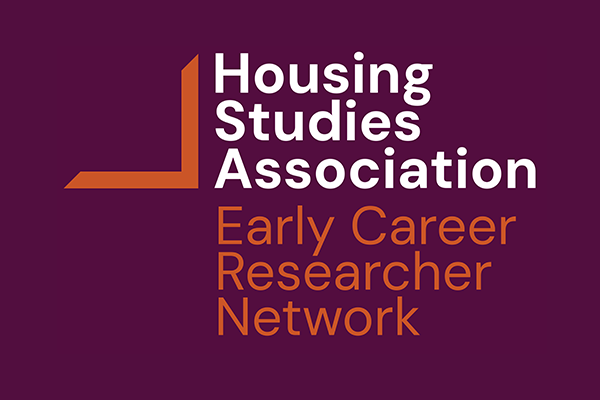Rachel Creaney is the current HSA Communications Assistant and a PhD researcher within the Centre of Housing Research at the University of St Andrews. Rachel’s research concerns the experiences of older people living in rural health smart homes. In this blog, she reflects on two events that she attended during Scottish Housing Day based on the theme of ‘housing is a human right’.
The 18th September 2019 marked the fourth annual ‘Scottish Housing Day’ which, this year, focused on ‘Housing is a Human Right’. Scottish Housing Day celebrates the impact that housing makes to the lives of people and communities across Scotland, as well as informing people of their housing options. You can read more about the organisation and their events here. I attended two separate events across the day: the Scottish Cross-Party Group for Housing, and a debate organised by the Chartered Institute of Housing (CIH) Scotland.
The International Covenant on Economic, Social and Cultural Rights states that everyone has a right to adequate housing, irrespective of income or access to economic resources. A human rights-based approach to ensuring adequate housing is applied through the underlying principles of participation, accountability, non-discrimination and equality, empowerment and legality. Legally, housing is already a human right, but work remains for this right to be better realised across Scotland, hence the focus during Scottish Housing Day.
The Cross Party Group for Housing, held at the Scottish Parliament, featured presentations from: Aileen Campbell MSP, Cabinet Secretary for Communities and Local Government; Callum Chomczuk, National Director, CIH; Heather Ford, Tenant, Edinburgh Tenants Federation. Meanwhile, the CIH debate on ‘housing is a human right’, held in Glasgow, featured Alan Millar, co-chair of the taskforce for human right leadership; Sally Thomas, Chief Executive for the Scottish Federation of Housing Associations (SFHA) and Ryan Kelly MSYP, Convenor of the Scottish Youth Parliament’s Social Security Committee. Although each speaker took their own angle, I did identify some commonalities, which are discussed below.
There needs to be increased provision of quality housing to enable people across Scotland to have access to a house that can become their home. These houses need to meet the changing and increasing demands of the populations of Scotland, which include adaptability as needs change, desirable locations, and the ability for sociability and inclusivity. Although more homes are being built, these remain at levels which are 20% lower than the number of homes being built during the recession. There were suggestions to change the balance of private to public housing (currently 75% of homes in Scotland are privately owned or rented). This current balance can have implications on quality standards whereby council tenants living in damp conditions are told they were ‘lucky they had a house’ (Heather Ford, Edinburgh Tenants Federation) and private tenants face housing that can be prohibitively expensive (although this is improving in Scotland with the Private Housing (Tenancies) (Scotland) Act 2016). Nevertheless, all discussants and debaters spoke of the need to improve housing conditions and levels of security across all sectors of the housing market through a move to a rights-based approach to housing, as at the end of the day, ‘your home is your world’ (Heather Ford, Edinburgh Tenants Federation).
There were multiple calls from the presenters and audience members that the current housing system is broken, and a human-rights approach to housing could serve to remake the existing system. The focus of the housing market needs to move from one of economic profit to one of social justice. Yet, with so much of the current Scottish housing market within the private sector there was broad agreement that responsibility for fixing the broken system should not fall solely on the public housing sector. This all seems to be a work in progress, as Aileen Campbell, MSP, suggested that nothing is ‘off the table’ when it comes to re-shaping the current housing system into something that is more authentic and longer-lasting. To do this and encourage the foundations for a human-rights based approach to housing, there needs to be a better understanding of our current position on housing issues as a country. For instance, we need to ensure we have accurate measures of national fuel poverty levels. Through greater communication with housing tenants and the wider population of Scotland in decision-making that affects their rights, this information can be more accurately gathered.
There needs to be increased levels of participation in decision-making processes by tenants as well as their representatives. Heather Ford discussed her experience of feeling empowered through a human rights approach to housing. As tenants realised that they had a right to adequate housing, they were more likely to hold their landlords to account for their dire housing conditions. By becoming more involved in the issues related to housing in their small community, through holding monthly forums and conducting surveys, there have been structural improvements to tenants’ homes and improvements to wellbeing through fewer hospital visits and new jobs. She encouraged all tenant representatives to ask their tenants what they need, highlighting that ‘you’ll probably find it’s less than you expect’. More broadly there needs to be better communication between tenants, their representatives and those in government to ensure there is the means to deliver this vision of increased participation, and the changes that tenants may require.
All speakers were convinced of the interlinkages between housing and other sectors, such as employment and health and social care, arguing that advances in housing will also benefit these other sectors. ‘Home is the bedrock on which everything succeeds or fails’ (Sally Thomas, SFHA) as without an adequate home, ensuring adequate healthcare or employment is virtually impossible. Relatedly, good health and social care and employment are important to ensuring tenants have the ability and means to remain in adequate housing. Thus, there was wide agreement that it is difficult, and unhelpful, to separate these areas. As such, housing, and particularly a human rights-based approach to housing, should be a key issue for the Scottish Government, given its potential overarching benefits beyond its own remit.
Finally there were numerous discussions on ‘where do we go next?’, in terms of resources and timescales and although the finer details are still being worked out there appears to be a great deal of excitement and passion for ensuring housing in Scotland is viewed across the board as a human rights issue. It has the potential to help to solve some of the burning issues of current housing debates such as homelessness and social housing issues, and there were numerous calls to highlight successes, such as Heather’s Story, as well as utilising the approach within local communities.
Personally, I remain cautiously optimistic about the approach, as although the potential benefits are huge there remains a long way to go to make this vision a reality, but having passionate and engaged people involved, such as those who spoke at Scottish Housing Day, is no doubt a good place to start.
Follow Rachel on Twitter https://twitter.com/RachelCreaney1







